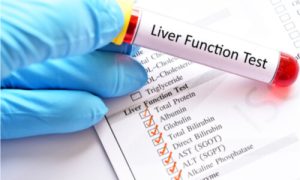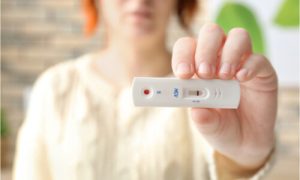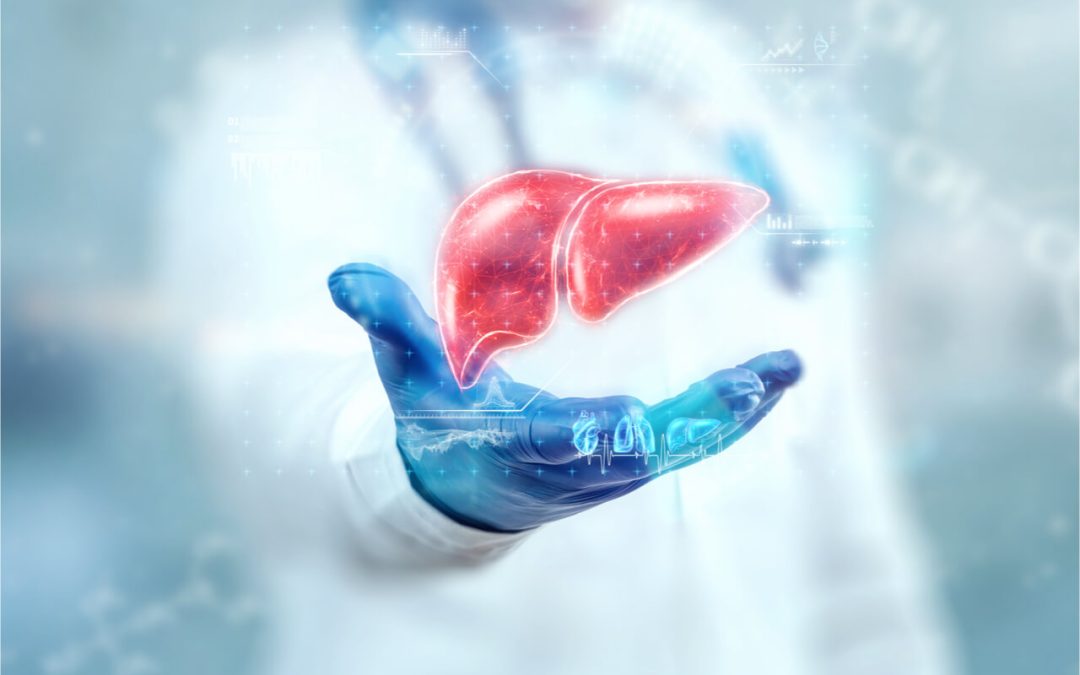As we all know, the liver is one of the most important organs in the body. It is responsible for a wide range of functions, including filtering toxins from the blood, producing bile to digest food, and storing energy. So it’s important to keep our livers healthy! In this blog post, we will discuss easy methods on how to check liver health at home. Let’s get started!
- What is a liver test?
- Liver function test: What does it do?
- Signs of liver disease
- When to contact a doctor
- How reliable are at-home test kits?
What is a liver test?
 A liver test, also known as a liver panel or hepatic function panel, is a blood test that evaluates the liver’s health and function. This test will be performed in an office by a healthcare practitioner who will collect blood from a person’s arm and test it.
A liver test, also known as a liver panel or hepatic function panel, is a blood test that evaluates the liver’s health and function. This test will be performed in an office by a healthcare practitioner who will collect blood from a person’s arm and test it.
Liver blood tests can detect and monitor liver disease. It can also help diagnose other liver-related illnesses, like fatty liver disease or cirrhosis. A blood sample, usually obtained by a finger prick, is required for home testing.
Some of these tests may use various markers to assess the health of the liver and other organs. Some lab companies, for example, provide a lipid or cholesterol test that can check both liver and heart health.
People undergoing a liver test may be required to fast and refrain from taking any drugs for a certain period of time. Before taking the test, a healthcare expert or a home test will tell you if you need to avoid food, drugs, or both.
Individuals who take an at-home test may need to call their healthcare physician to discuss the results.
Liver function tests: What does it do?
The enzymes and activities tested by a typical liver panel may differ.
According to the American Liver Foundation, some common liver tests are as follows.
Tests for liver enzymes
The following enzymes can be detected with liver enzyme tests:
- Alanine transaminase (ALT): High levels of alanine transaminase (ALT) can suggest acute liver cell injury (nonalcoholic fatty liver disease).
- Aspartate transaminase: Excess levels of this enzyme may indicate acute liver cell injury.
- Alkaline phosphatase (ALP): High alkaline phosphatase (ALP) levels can suggest liver or bile duct disease.
- Gamma-glutamyl transpeptidase (GGT): High levels of this enzyme may indicate liver or bile duct injury.
Liver protein testing
The following proteins are screened for in liver protein tests:
Globulin: This protein aids in the operation of the immune system; low levels of globulin can signal liver damage and other liver problems.
Albumin: An albumin test determines how effectively the liver produces protein. Low levels of this protein may indicate liver injury or other disorders affecting the liver (chronic liver disease or alcoholic liver disease.)
Prothrombin: High amounts of prothrombin, a protein that participates in blood clotting, can suggest liver injury.
Bilirubin levels
 Bilirubin is a fluid produced by the breakdown of red blood cells in the body. Bilirubin can enter the bloodstream if a person has liver disease, producing jaundice. Outside of the liver, bilirubin can cause urine to look unusually black.
Bilirubin is a fluid produced by the breakdown of red blood cells in the body. Bilirubin can enter the bloodstream if a person has liver disease, producing jaundice. Outside of the liver, bilirubin can cause urine to look unusually black.
While home testing may not detect all of these indicators, it can give valuable information about the potential liver injury, illness, or other liver disorders.
Signs of liver disease
Up to 50% of persons with acute liver illness exhibit no symptoms. The liver can sometimes repair itself without the need for therapy. However, some liver impairment cases can be severe (liver failure,) necessitating hospitalisation and a liver transplant after liver biopsy.
People suffering from liver disease may encounter the following symptoms:
- fever
- fatigue or weakness
- jaundice
- pain under the ribs on the right side of the body
- vomiting and nausea
- dark-coloured urine
- pale-coloured stools
According to the American Liver Foundation, early identification of liver illness can assist improve results. Early discovery allows a person to address the problem and avoid activities that harm the liver (drink alcohol, eat fatty foods, smoke, etc.,) allowing the liver to repair and regenerate damaged parts.
When to contact a doctor
If a person receives a test result indicating liver illness, they should check with their doctor.
People might also seek medical attention if they experience symptoms of liver illness yet obtain normal test findings. A doctor might perform further tests to rule out any potential health issues. They can also talk about treatment choices and provide you with additional information about your illness.
How reliable are at-home test kits?
 At-home exams can be accurate. According to the Food and Drug Administration (FDA), users should follow all test instructions to get the best results. To assist in assuring the quality and accuracy of test findings, a person should seek information regarding where the sample is tested.
At-home exams can be accurate. According to the Food and Drug Administration (FDA), users should follow all test instructions to get the best results. To assist in assuring the quality and accuracy of test findings, a person should seek information regarding where the sample is tested.
Liver tests are available for home testing. However, they may not be as extensive as a full liver panel that a healthcare professional may order. A person should follow up with their doctor if they receive any abnormal results — a medical professional will likely order additional testing (imaging tests or biopsy of liver tissue ) and review the individual’s general health. Some tests are sent to laboratories that have been authorised by the Clinical Laboratory Improvement Amendments (CLIA). Three government agencies, including the FDA, the Centres for Medicaid Services (CMS), and the Centers for Disease Control and Prevention(CDC), form the CLIA.
Individuals should always follow the exam instructions exactly as stated to improve test accuracy. Incorrect outcomes may occur from failing to follow the guidelines.
At-home liver tests can screen for liver cells, enzymes, liver proteins, bilirubin, cholesterol, and lipids to provide an overview of a person’s liver health. However, some tests may not be as extensive as a liver panel that a doctor conducts. A person should follow up their results with a healthcare professional who can provide additional testing and offer treatment options if required.
References:
https://www.medicalnewstoday.com/articles/at-home-liver-test#_noHeaderPrefixedContent
https://liverfoundation.org/13-ways-to-a-healthy-liver/
https://www.healthline.com/health/liver-detox-home-remedy
https://thriva.co/hub/liver-function/how-to-test-your-liver-function
https://www.mayoclinic.org/diseases-conditions/liver-problems/diagnosis-treatment/drc-20374507


Recent Comments